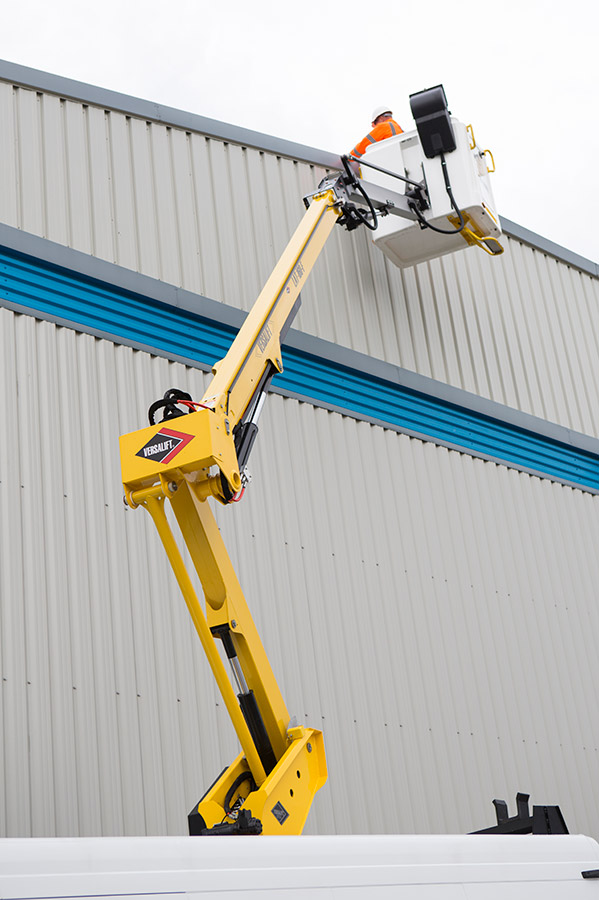Access Hire Insights: Four Key Trends in Facility Management For 2023
Blog-December 16, 2022
Facilities management is an essential part of the UK economy. Not only does it employ 10% of the country’s workforce¹, and is projected to be worth £52 billion by 2026². But in a post-pandemic world, the industry faces a series of new challenges.
What are the priorities, problems and opportunities the industry faces? And how can Access Hire’s market-leading fleet of vehicle mounted access platforms help?
Here are four key trends in facility management to expect in 2023:
Four facility management trends in 2022
1. Sustainability goals
Every industry is under pressure to reduce carbon emissions and pivot to more environmentally sound processes. But given that buildings are responsible for 42% of the UK’s energy usage³, it’s fair to say facilities managers should be particularly concerned about their Environmental, Social and Governance (ESG) scores.
The International Energy Agency (IEA) estimates that direct building CO2 emissions must decrease by 50% in order to reach net-zero by 2050. This would require buildings to cut emissions roughly 6% per year until 2030⁴. As tenants and owners realise just how steep this task is, they will expect more dramatic action from facilities managers.
How can they do it?
From installing energy efficient lighting and HVAC systems to retrofitting buildings with more sustainable materials, there are a wide range of solutions for facilities managers to consider. Many of these will even help reduce costs: switching to renewables can save 10%⁵, while buildings that have shifted to eco-friendly processes have maintenance costs 20% lower than average⁶.
ESG calculations are increasingly complex, with many now including ‘tier three’ suppliers – which means your entire supply chain must be as green as possible. That means the strategic equipment you use – such as vehicle mounted access platforms – need to be as energy efficient as possible.
More than anything though, facilities managers will need to ensure their efforts are measurable. Not only will this help them demonstrate their sustainability efforts and market their facilities – it will create a vital benchmark for future efforts to be measured against.

2. More data than ever
A key part of measuring ESG scores is data – and that will be a defining factor for facility managers in the coming year. While many have already begun to invest in technology such as Artificial Intelligence (AI) and the Internet of Things (IoT), the opportunity to improve buildings using data-driven decision making and automated maintenance are still huge.
This will not simply be about introducing new technology – it will be about properly utilising it. Research suggests that 95.5% of all data captured goes unused in the engineering and construction industries⁷. Facility managers that are able to make greater use of their data will see massive improvements in the efficiency of buildings.

3. Predictive maintenance
The clearest efficiency gains companies see will be achieved through predictive maintenance. This involves using data to know when equipment needs to be tended to – rather than waiting for an issue to arise before acting. While it has been a growing trend amongst facility managers, we expect 2023 to see predictive maintenance become the norm.
Companies that effectively implement it will be able to respond faster to problems, reduce costs and increase their buildings’ sustainability. According to Delliote, this ultimately increases productivity by 25%, reduces breakdowns by 70% and lowers maintenance costs by 25%⁸.
Having the right partners in place – so that key equipment such as vehicle mounted access platforms can be accessed as soon as they are needed – will be a key part of this. Predictive maintenance is only effective if work can actually be undertaken quickly.

4. Managing costs
From staffing shortages and supply chain issues to ever-growing inflation, costs are a major concern for facility managers. The pressure to provide exceptional experience for facility users exacerbates this issue, as investment in clearer, greener buildings is expected at the exact moment when budgets are stretched the most.
Managing costs will come down to two factors. The first is strategy: facility managers will have to find workarounds and opportunities to trim the fat. This might involve reconsidering the contracts they use for staff and equipment. In many cases, there may be savings to be made – or more budget efficient options they could switch to.
The second is the choice of partners. Whether it’s the vehicle mounted access platforms used to perform maintenance or the temping agency used to provide labour, facility managers need to be confident that they can trust their partners.
How Access Hire helps
Access Hire is a key strategic partner to the facility management industry, providing access to the UK’s largest fleet of vehicle mounted access platforms. Every vehicle features inclusive service and 24/7/365 support from our expert team – to ensure you can undertake the work you need, as soon as you need to.
2.https://facilitiesmanagementforum.co.uk/briefing/uk-fm-market-to-hit-52bn-in-2026/
3.https://www.rics.org/globalassets/rics-website/media/knowledge/research/research-reports/big-data-a-new-revolution-in-the-uk-fm-sector-rics.pdf
4.https://wedocs.unep.org/bitstream/handle/20.500.11822/34572/GSR_ES.pdf
5.https://smartway2.com/blog/sustainable-facilities-management/
6.https://blog.infraspeak.com/benefits-of-sustainable-facility-management/
7.https://www.i-fm.net/documents/files/i-FM_TO23execsummary.pdf
8.https://www2.deloitte.com/content/dam/Deloitte/de/Documents/deloitte-analytics/Deloitte_Predictive-Maintenance_PositionPaper.pdf